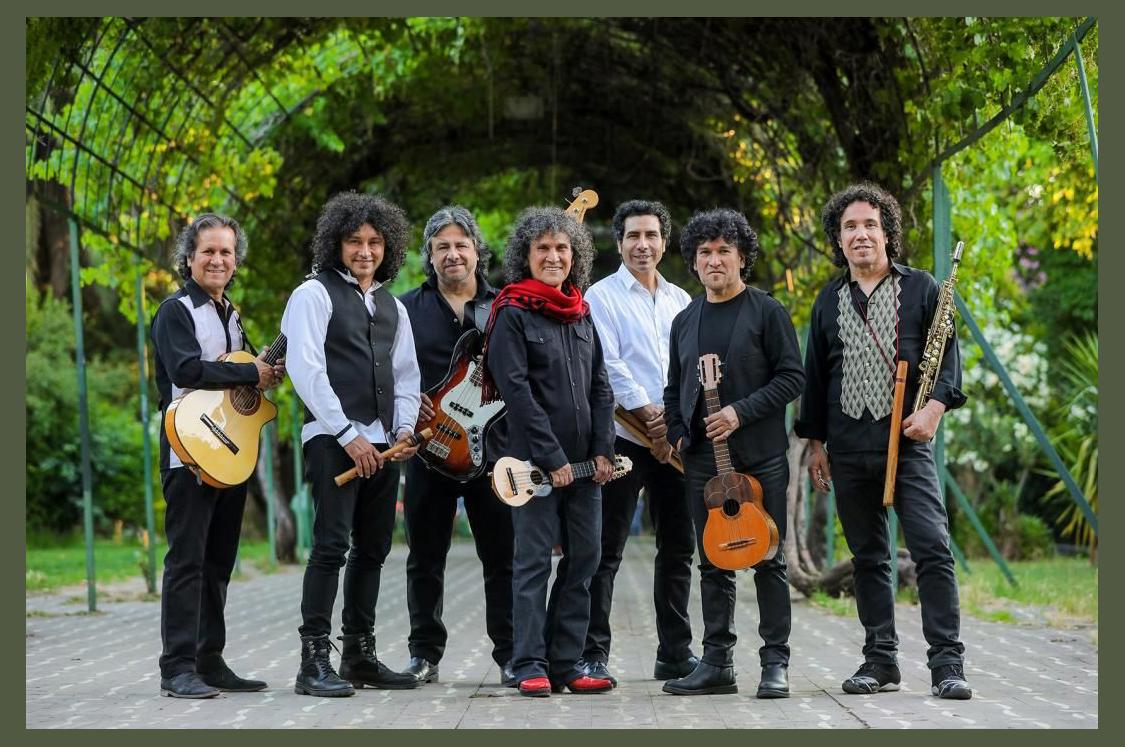 Illapu
Illapu
Illapu: The Voice of the People
Illapu, the legendary Andean folk music band from Chile, has been captivating audiences worldwide for over half a century. Their music, steeped in the rhythms and melodies of the Andes, has become a powerful symbol of hope and resistance for the oppressed.
Origins and Influences
Formed in 1971 amidst the political turmoil of Chile's Unidad Popular government, Illapu's name means "lightning" in the Quechua language. The band's early sound was heavily influenced by traditional Andean and folkloric styles, as well as the protest songs of artists like Victor Jara and Violeta Parra.
Challenges and Controversies
Illapu's music often clashed with the political climate of Chile during the Pinochet dictatorship. Their lyrics, which spoke of social justice and the plight of the marginalized, drew the ire of the regime. In 1973, after the military coup, the band was forced into exile, where they spent several years touring and recording.
Discography and Collaborations
Throughout their career, Illapu has released over 30 albums, each imbued with their signature blend of Andean rhythms and socially conscious lyrics. Some of their most celebrated works include:
* "Vientos del Pueblo" (1974)
* "De Pena y Alegría" (1984)
* "Morena Esperanza" (1988)
* "El Surco" (2001)
Members
Illapu's original lineup consisted of brothers Roberto, Jaime, and Andrés Márquez, along with Mario Mutis and José Miguel Márquez. Over the years, the band has undergone several lineup changes, with new members joining and others departing. Notable current members include:
* Roberto Márquez (vocals, guitar)
* Jaime Márquez (vocals, bass)
* José Miguel Márquez (vocals, guitar)
* Ernesto Márquez (drums)
* Cristián Villanueva (percussion)
Legacy and Impact
Illapu's music has had a profound impact on the Chilean and international music scenes. Their songs have become anthems of hope and resistance, inspiring countless people around the world. The band has received numerous awards and accolades, including the Latin Grammy Lifetime Achievement Award in 2014.
Today, Illapu continues to tour and record, carrying the torch of Andean folk music and advocating for social justice. Their music serves as a reminder of the power of art to inspire, unite, and give voice to the voiceless.
Illapu, the legendary Andean folk music band from Chile, has been captivating audiences worldwide for over half a century. Their music, steeped in the rhythms and melodies of the Andes, has become a powerful symbol of hope and resistance for the oppressed.
Origins and Influences
Formed in 1971 amidst the political turmoil of Chile's Unidad Popular government, Illapu's name means "lightning" in the Quechua language. The band's early sound was heavily influenced by traditional Andean and folkloric styles, as well as the protest songs of artists like Victor Jara and Violeta Parra.
Challenges and Controversies
Illapu's music often clashed with the political climate of Chile during the Pinochet dictatorship. Their lyrics, which spoke of social justice and the plight of the marginalized, drew the ire of the regime. In 1973, after the military coup, the band was forced into exile, where they spent several years touring and recording.
Discography and Collaborations
Throughout their career, Illapu has released over 30 albums, each imbued with their signature blend of Andean rhythms and socially conscious lyrics. Some of their most celebrated works include:
* "Vientos del Pueblo" (1974)
* "De Pena y Alegría" (1984)
* "Morena Esperanza" (1988)
* "El Surco" (2001)
Members
Illapu's original lineup consisted of brothers Roberto, Jaime, and Andrés Márquez, along with Mario Mutis and José Miguel Márquez. Over the years, the band has undergone several lineup changes, with new members joining and others departing. Notable current members include:
* Roberto Márquez (vocals, guitar)
* Jaime Márquez (vocals, bass)
* José Miguel Márquez (vocals, guitar)
* Ernesto Márquez (drums)
* Cristián Villanueva (percussion)
Legacy and Impact
Illapu's music has had a profound impact on the Chilean and international music scenes. Their songs have become anthems of hope and resistance, inspiring countless people around the world. The band has received numerous awards and accolades, including the Latin Grammy Lifetime Achievement Award in 2014.
Today, Illapu continues to tour and record, carrying the torch of Andean folk music and advocating for social justice. Their music serves as a reminder of the power of art to inspire, unite, and give voice to the voiceless.